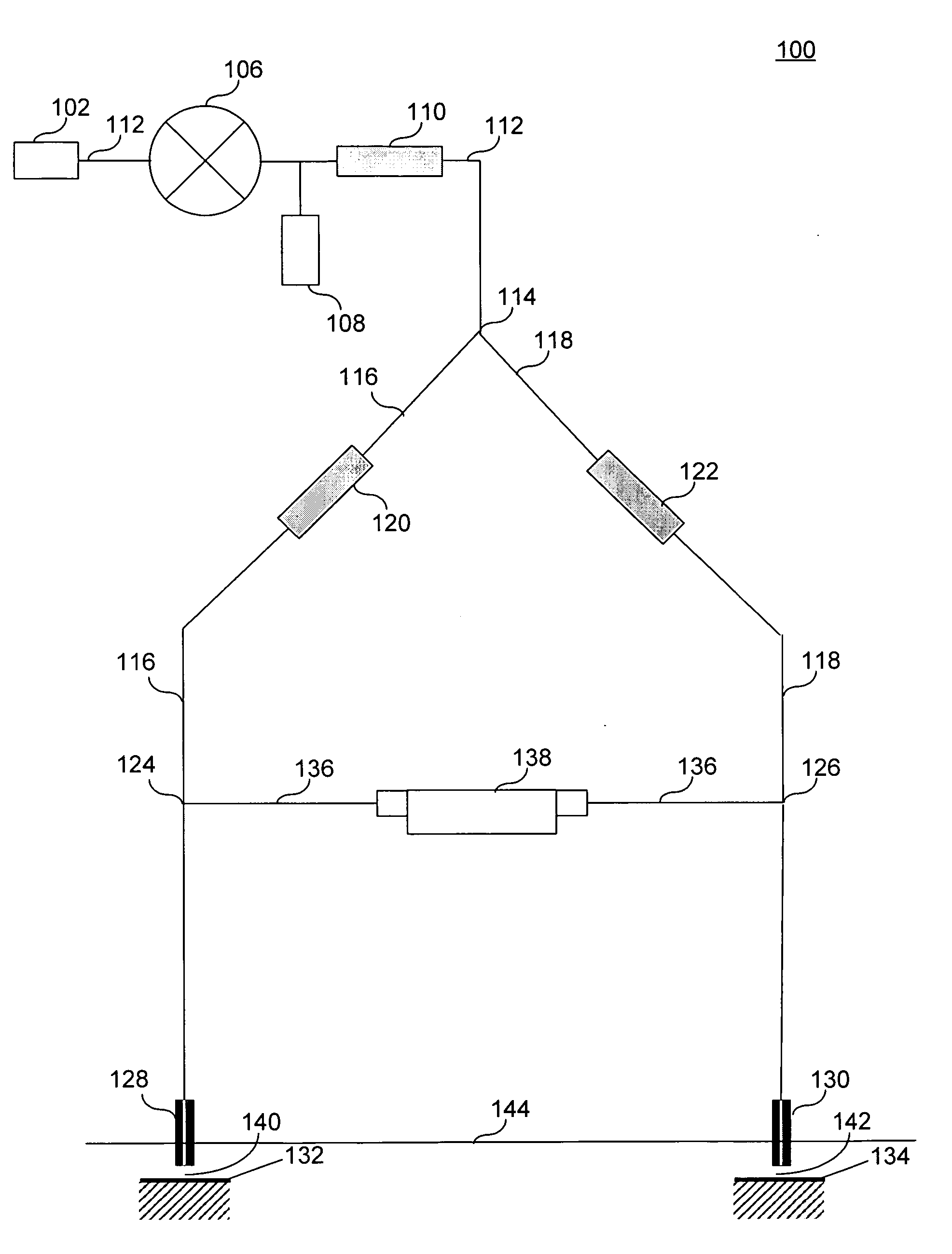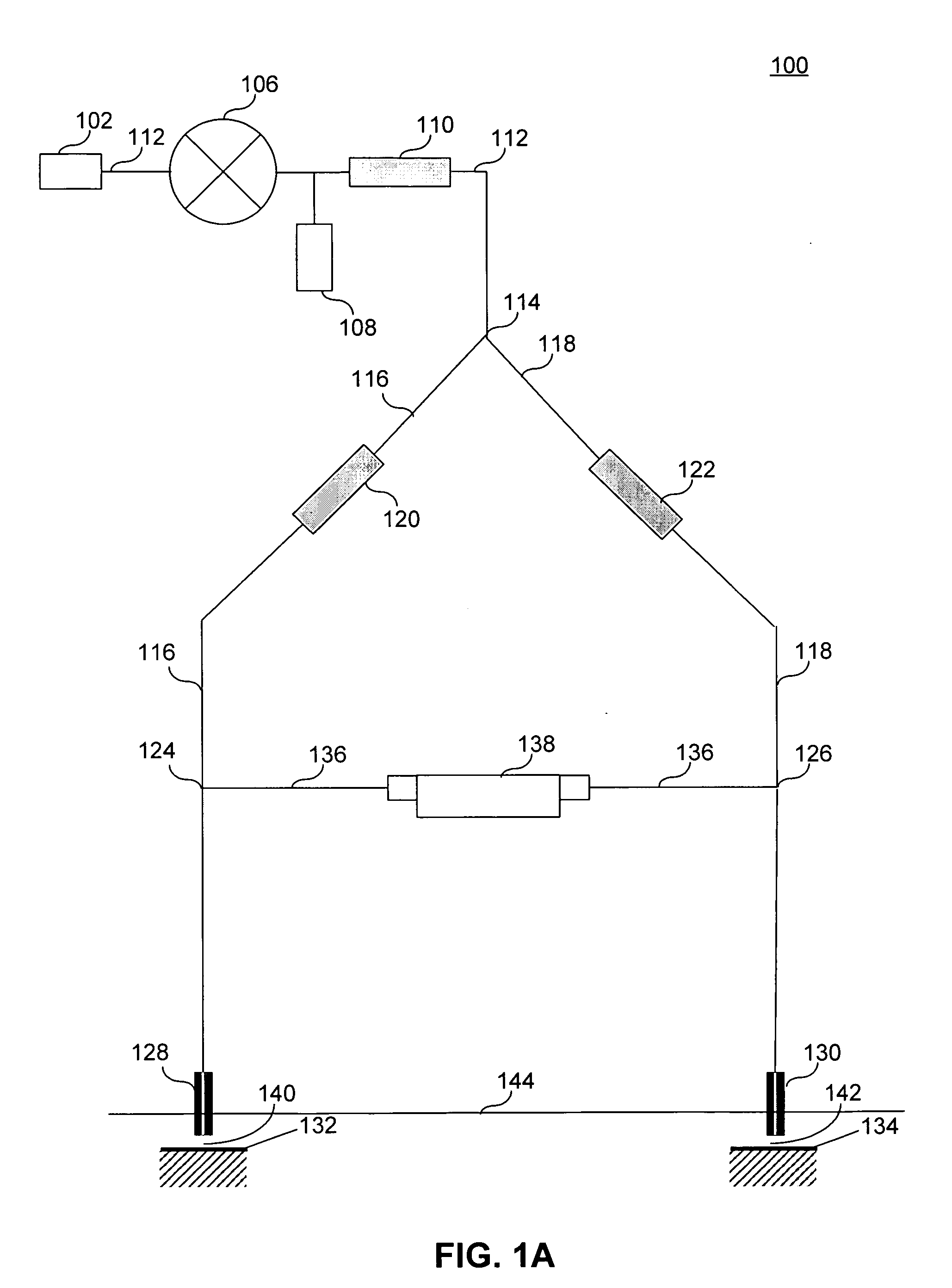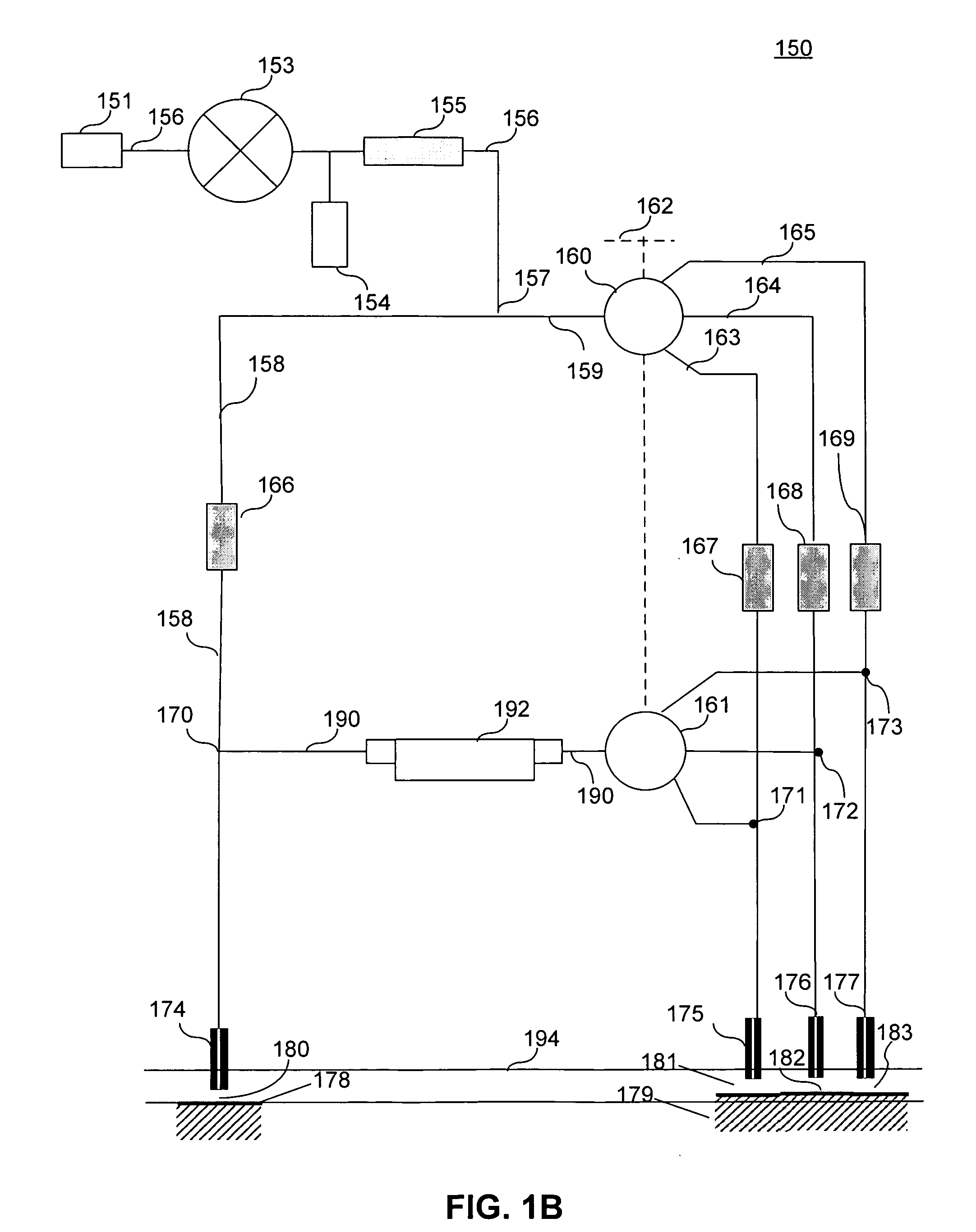Liquid flow proximity sensor for use in immersion lithography
- Summary
- Abstract
- Description
- Claims
- Application Information
AI Technical Summary
Benefits of technology
Problems solved by technology
Method used
Image
Examples
Embodiment Construction
[0032] While the present invention is described herein with reference to illustrative embodiments for particular applications, it should be understood that the invention is not limited thereto. Those skilled in the art with access to the teachings provided herein will recognize additional modifications, applications, and embodiments within the scope thereof and additional fields in which the present invention would be of significant utility.
A. Liquid Flow Proximity Sensor
[0033]FIG. 1A illustrates liquid flow proximity sensor 100, according to an embodiment of the present invention. Liquid flow proximity sensor 100 includes liquid mass flow controller 106, central channel 112, measurement channel 116, reference channel 118, measurement channel restrictor 120, reference channel restrictor 122, measurement probe 128, reference probe 130, bridge channel 136 and liquid mass flow sensor 138. Liquid supply 102 injects a liquid at a desired pressure into liquid flow proximity sensor 100. ...
PUM
 Login to View More
Login to View More Abstract
Description
Claims
Application Information
 Login to View More
Login to View More - R&D
- Intellectual Property
- Life Sciences
- Materials
- Tech Scout
- Unparalleled Data Quality
- Higher Quality Content
- 60% Fewer Hallucinations
Browse by: Latest US Patents, China's latest patents, Technical Efficacy Thesaurus, Application Domain, Technology Topic, Popular Technical Reports.
© 2025 PatSnap. All rights reserved.Legal|Privacy policy|Modern Slavery Act Transparency Statement|Sitemap|About US| Contact US: help@patsnap.com



